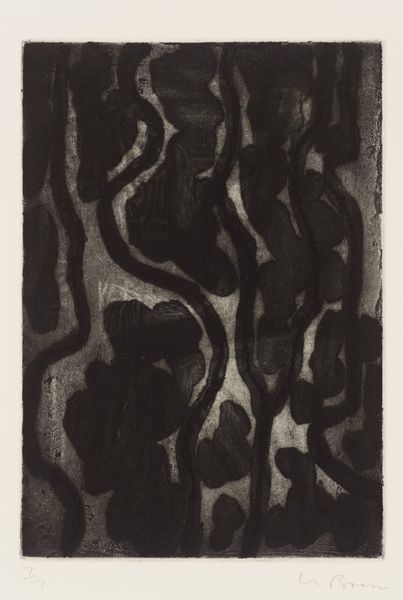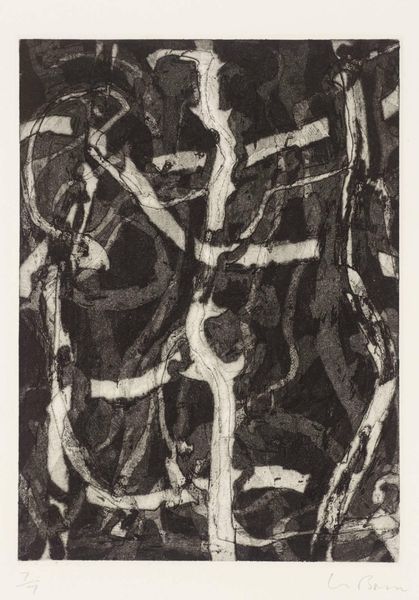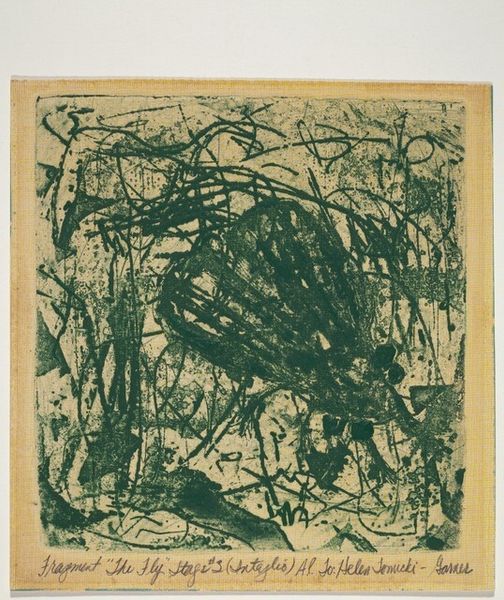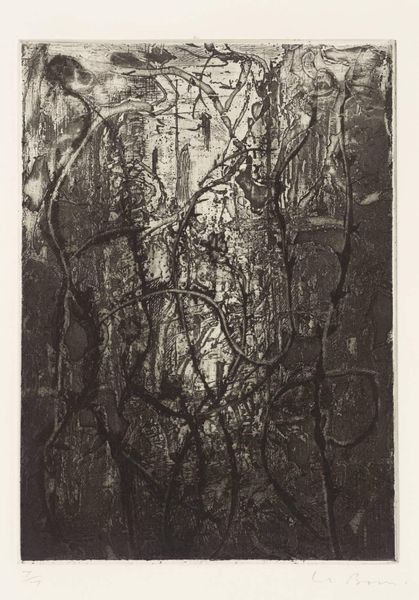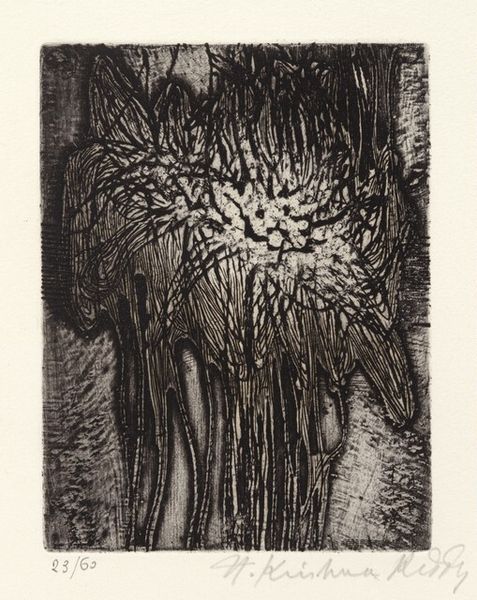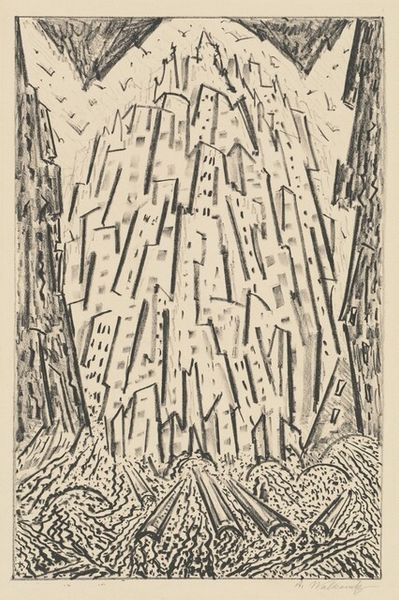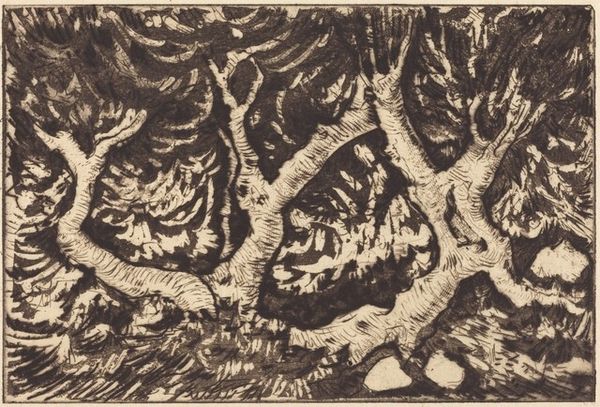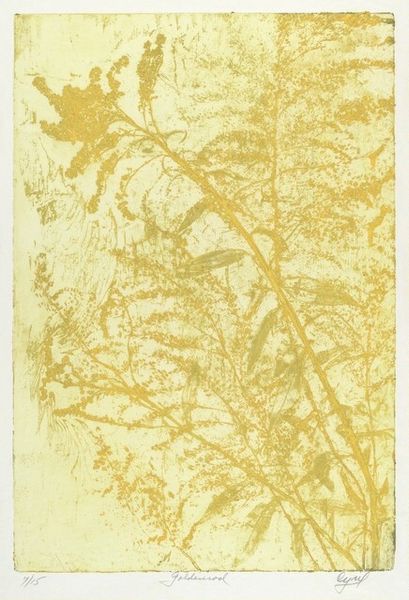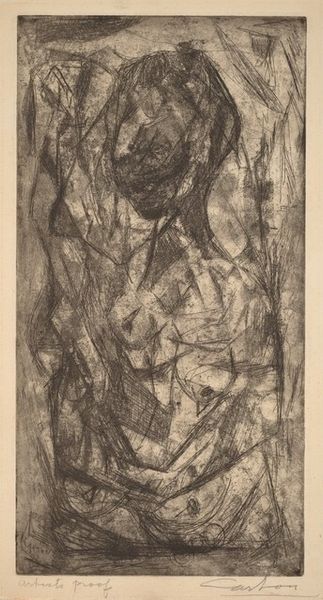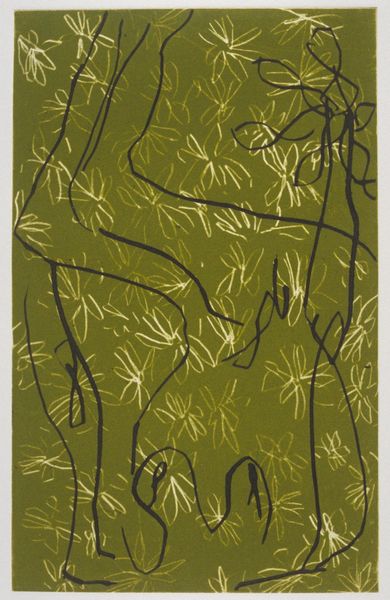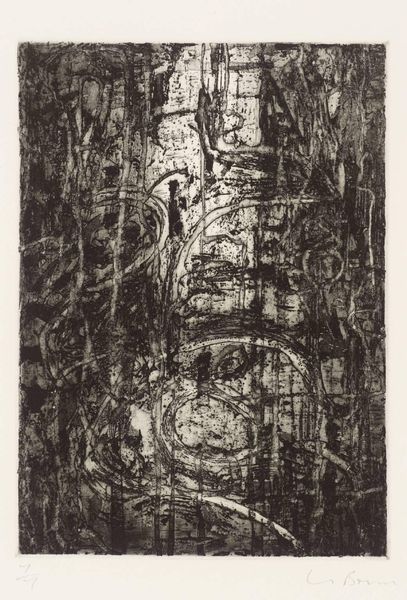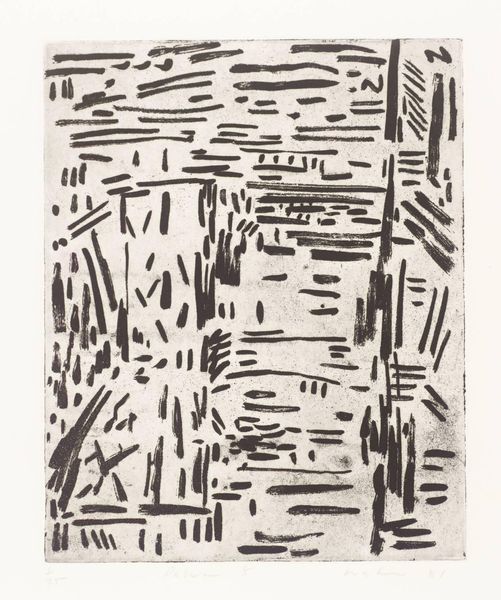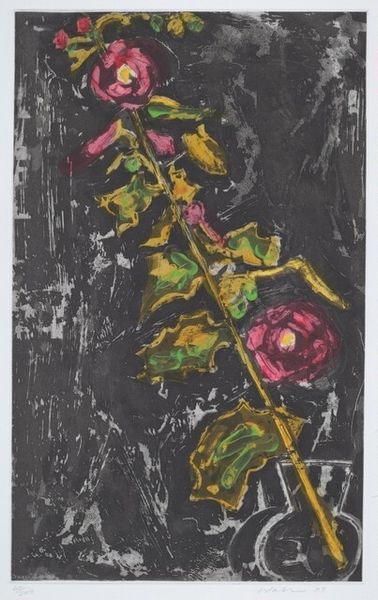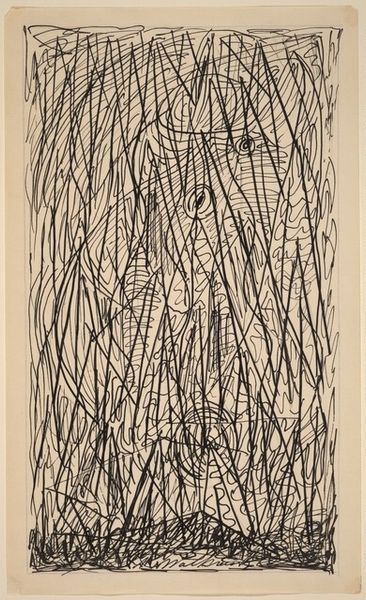
print, ink
#
abstract-expressionism
#
abstract expressionism
# print
#
landscape
#
figuration
#
ink
#
abstraction
#
line
Copyright: National Gallery of Art: CC0 1.0
Curator: Woah. That feels… primal. There’s a ferocity to the lines, but also a kind of earthiness. A real sense of rootedness. What do you think? Editor: Well, this is Tatsuoki Nambata’s “Poem of Nippon.” Although undated, it clearly demonstrates the artist's mastery of ink and printmaking techniques, reflecting broader themes of national identity and artistic expression in postwar Japan. Curator: “Poem of Nippon,” huh? So, like a visual haiku? There's this rhythmic quality, these bursts of black ink and textured…are those trees? Is it a landscape, fractured? Editor: Indeed, while leaning toward abstract expressionism, some scholars view it through the lens of traditional Japanese landscape painting. The strong linear forms invite discussion around cultural representation and reconstruction after devastation. The dynamic composition evokes the tensions of a nation grappling with identity. Curator: Identity is definitely there, it feels very human somehow. I think it captures something so raw. Like a dream barely remembered. There are figures hidden, struggling to get out, or maybe disappear in these lines, what do you think? Editor: I agree. Consider the cultural context, right? Post-war Japan sought to reconcile traditional values with modernization. "Poem of Nippon", in its abstract figuration, then, may echo those cultural anxieties. The use of ink as medium itself symbolizes a link to Japan’s artistic heritage, disrupted through Westernization, so this represents an act of cultural reassertion. Curator: So, the very act of creation becomes a kind of rebellion? Love that! So it speaks beyond landscape painting toward the inner world, doesn’t it? Editor: Absolutely, we can see it speaking across both, negotiating place, person, identity, memory, hope. Curator: Well, after spending this time together, that is now etched in my brain too. Now I just need to go read some more Japanese poetry. Editor: Likewise, it makes one want to reread Fanon's take on cultural reclamation. A print holds so much.
Comments
No comments
Be the first to comment and join the conversation on the ultimate creative platform.
